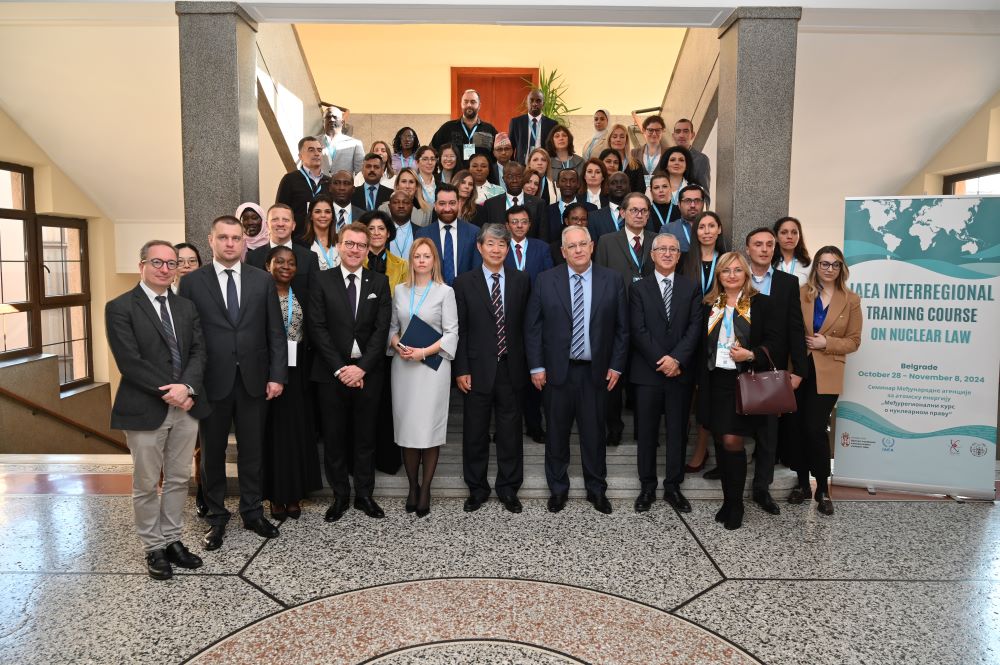The two-week “Interregional Course on Nuclear Law” attended by more than 40 countries and 10 experts, which is organized by the International Atomic Energy Agency (IAEA) and Serbian Radiation and Nuclear Safety and Security Directorate (SRBATOM), was officially opened at the Faculty of Law in Belgrade.
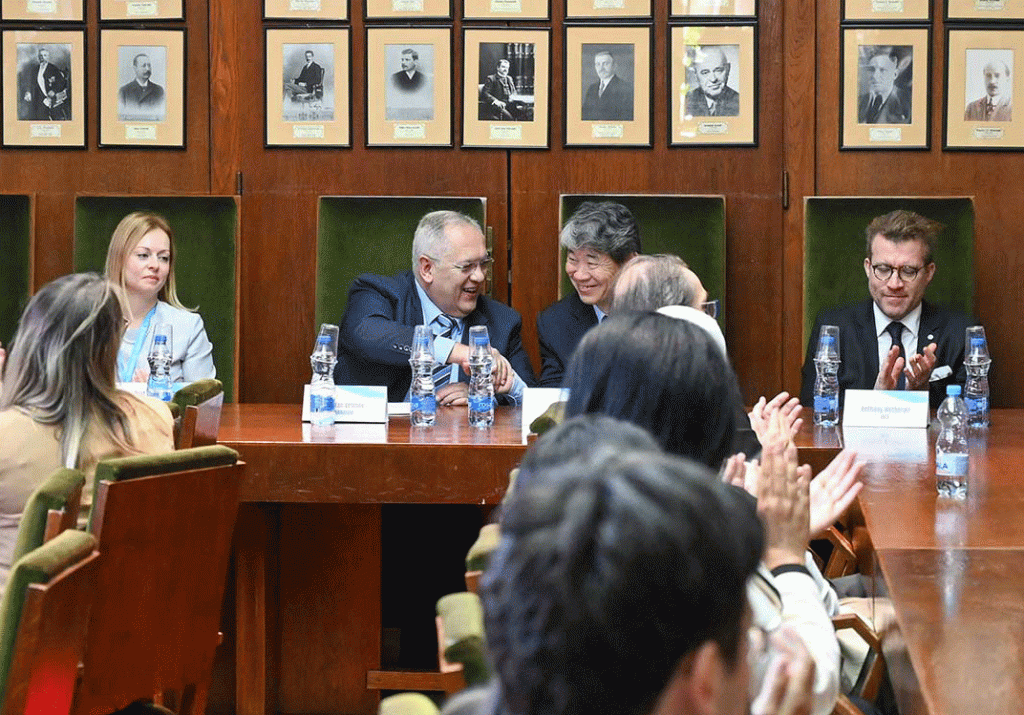
Sladjan Velinov, Director of Serbian Radiation and Nuclear Safety and Security Directorate (SRBATOM) took this opportunity to express his gratitude to the IAEA and the Faculty of Law on cooperation.
“It is my pleasure to say that the organization of this course opens a new chapter in history, not only in the operations of the Directorate, but also in the overall development of nuclear energy application in our country.
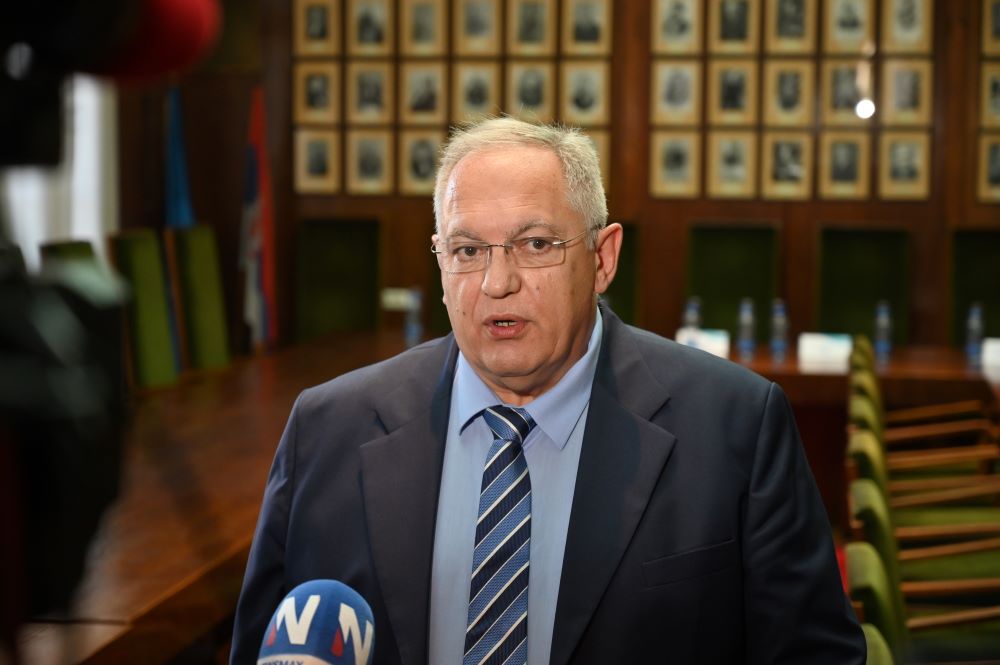
I would like to take this opportunity to express my gratitude to the International Atomic Energy Agency on the organization of this event, which, I believe, will be a strong incentive for all of us to affirm and focus on nuclear law as much as we can, especially as this is the field apparently not present enough both in our widest academic and national circles. I am particularly proud that the support of the Directorate to the IAEA in the organization of this course points at yet another proof of high level of our cooperation and mutual understanding. I am certain that our cooperation in the future can only go up and that the IAEA will be one of the most reliable partners to our country in the field of nuclear energy development and applications”, said Velinov.
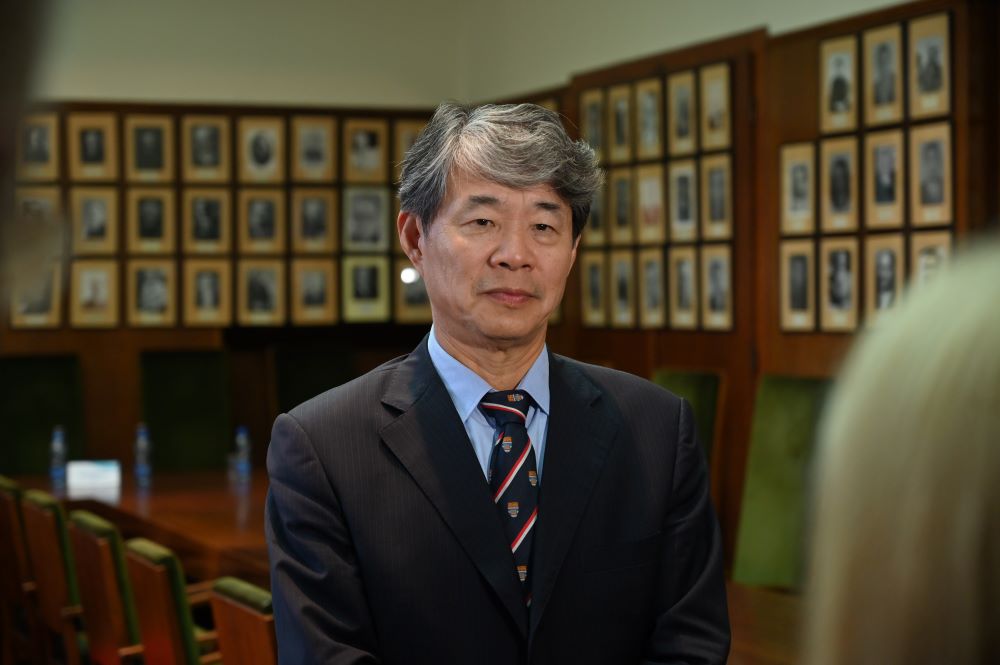
The formal opening of the course was attended by the IAEA Deputy Director General, Mr Hua Liu who, among other things, said that this course is a part of Technical Cooperation Programme with the IAEA which stands out as the primary mechanism for the exchange of knowledge and education in the field of nuclear technologies in the IAEA member states. This programme supports the member states throughout the world in facing their key developmental priorities, such as management of nuclear knowledge, support in identifying future energy needs and enhancement of radiation protection and nuclear safety and security through provision of the adequate legislative assistance.
“Nuclear science and technology directly contribute to the achievement of more than half of UN Sustainable Development Goals, and indirectly to the achievement of all 17 UN Sustainable Development Goals. As the world is struggling with climate changes and energy insecurity, the countries are increasingly considering the introduction of nuclear energy. The experts foresee that in the following decades nuclear energy capacities will be significantly increased to meet our desired energy and climate goals”, said Hua Liu.
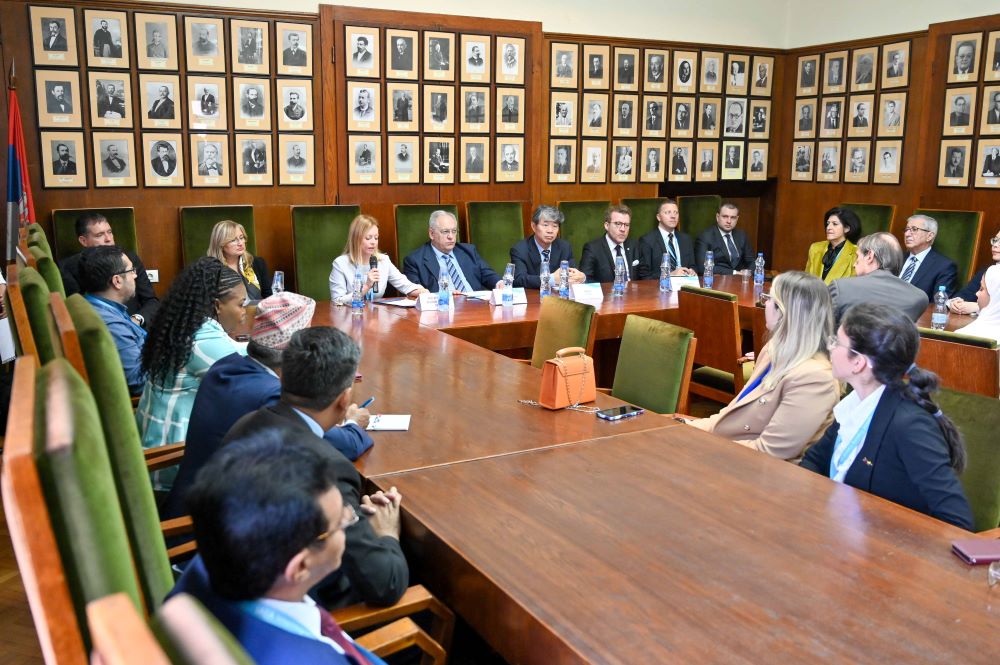
“All countries, no matter the fields of nuclear technology applications, require adequate nuclear law. The national governments are responsible for the establishment of their national legal frameworks. In order for this to be achieved, qualified human resources and expertise are a prerequisite for the development of necessary legislation and regulations, and countries can address the IAEA for such support. Human resources and capacity strengthening are a fundamental part of the technical cooperation the IAEA has with the Republic of Serbia”, added Hua Liu.
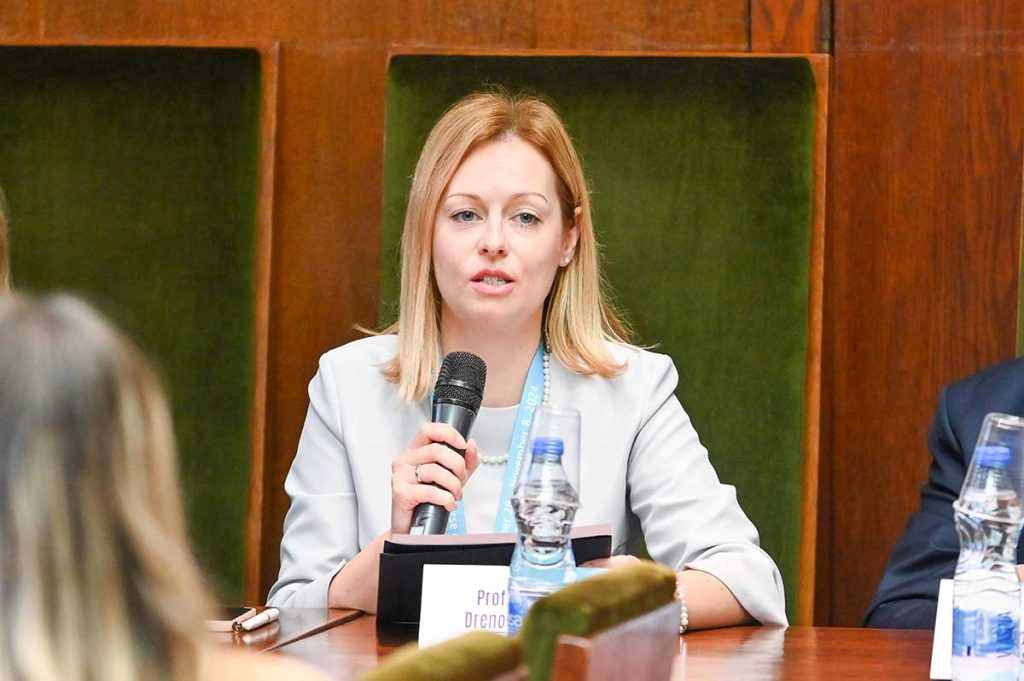
Full professor of the Faculty of Law, Mirjana Drenovak-Ivanovic pointed out at the opening that “only a year and a half passed between the initial meeting of the representatives of Serbian Radiation and Nuclear Safety and Security Directorate and the Faculty of Law where the possibilities and modalities of cooperation were discussed, and the actual organization of such an important event whose significance is reflected in the fact that today we have here the representatives of more than 40 countries, who, in the following two weeks will have the opportunity to gain the latest knowledge on nuclear law”.
Thanks to the support of the IAEA, more than 40 countries has adopted their first national laws. During this intensive two-week course, several key areas will be discussed. The training course relies on the relevant regulations on the safe, secure and peaceful use of nuclear energy and ionizing radiation, including the international legal instruments governing the field of nuclear safety, security and protection.
